PLATFORM
On the underrepresentation and mistreatment of women and nonbinary people in music.
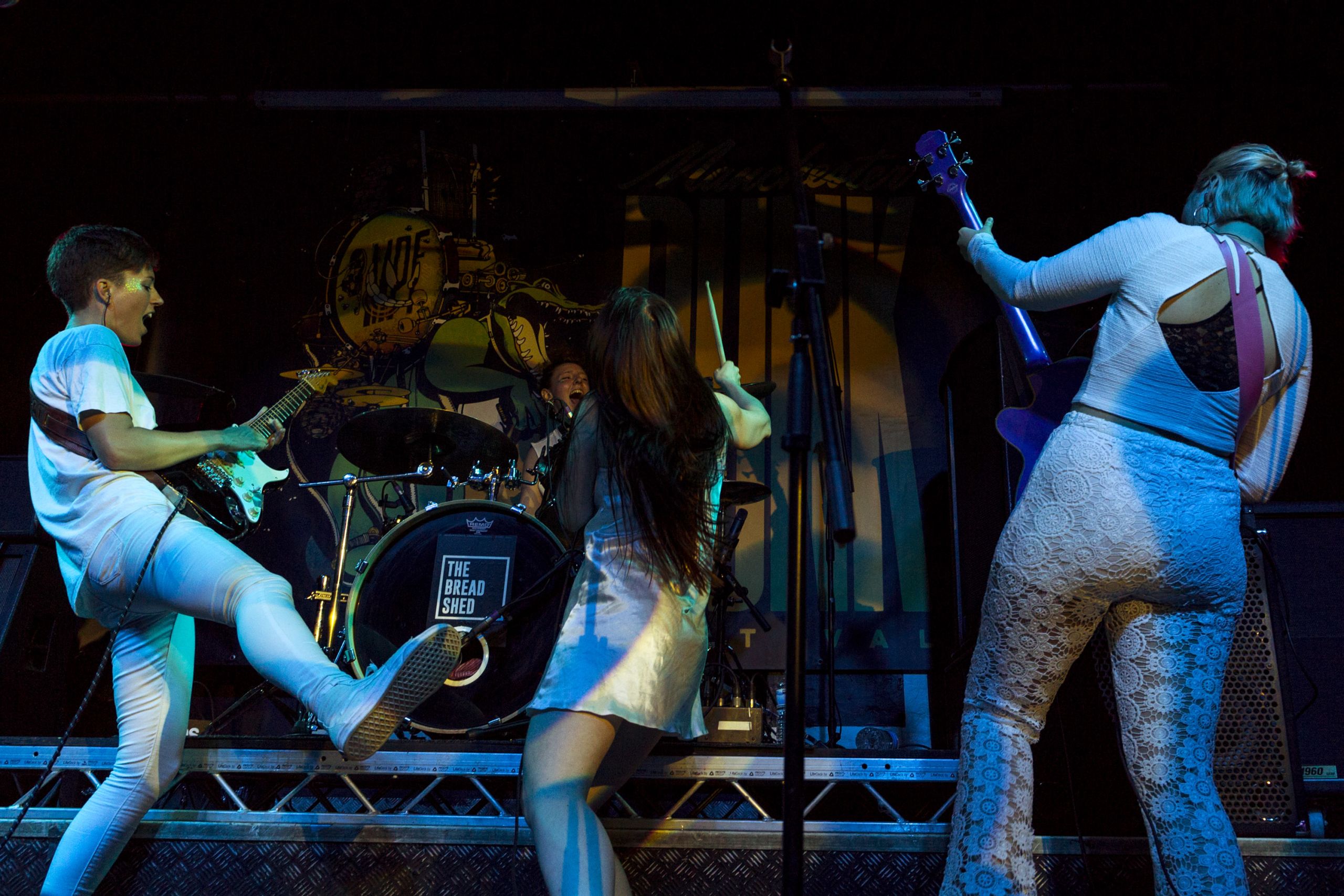
In a world of lineups with, upon removal of all-male acts, you’re left with a blank page and – if you’re lucky – a couple of scattered women and non-binary performers, often clustered together in keeping with a “female-fronted genre”(what is that?).
It’s the same story across a wide array of situations: a sense of condescension, whether it be overt or subconscious, pushing these people down. Countless have no doubt been discouraged from continuing the pursuit of music, as a musician or behind the scenes, because of words said or attitudes directed towards them that make them feel less than another for no reasons other than gender, sexuality, race, and so on. In a film premiered on Manchester Punk Festival’s Saturday date, Suzy Harrison’s So, which band is your boyfriend in? showcases the impact of such treatment in simply the title, but goes even deeper in analyzing the effects and how we can move forward to improve this.
Phoebe Cross, drummer for indie punk band Happy Accidents, recalls things as simple as not being let into a venue she’s about to play, “sometimes really having to prove that you’re playing in the band,” or being called things along the lines of “Mrs. Drummer Lady,” something that would never happen to a guy.
While instances such as these are improving, there’s still so far to go to improve. These bands are, at various levels in both their songwriting and their actions outside of this, facing it head-on and taking action to execute change in their industry.
While Happy Accidents aren’t outwardly political, at least in songwriting content compared to other bands playing the festival, that doesn’t mean they can’t take their platform for good use in the industry. “I feel like it’s important to, not send a message straight-up, but to lead by example,” guitarist Rich Mandell says,“live what you want; rather than say ‘this is the message’, show people.”
For Phoebe, it’s the same; by playing drums, onstage, as a woman, it’s hard to avoid politics by simply that, and by pursuing this in a world where she faces prejudice, she’s setting an example of empowerment for other women watching her.
Referencing an interview with Jen from Colour Me Wednesday from the Harrison’s aforementioned film, Phoebe encourages overcoming the double-whammy of stage fright and sour looks from sour men who think non-male performers can’t do their part for the others like her in the crowd watching.
“You think maybe there’s a kid or a girl in the crowd who is also scared to play, and then if I’m scared to play and not showing them that it’s fine to play, then there’s no hope,” she says. “So sometimes, just being there and me playing, as a woman, I guess it’s good for me to be doing it. Because I know it took me so long to get in a band, when probably should have been in a band from, I don’t know, age eleven.” Where Rich was jamming with his brother from that age, Phoebe didn’t take part until she was eighteen, but she hopes setting the example will inspire just one more person to do the same.
“We want women in the crowd and people from minority backgrounds to think, look, there’s a brown girl onstage. I’ve never seen a girl like that before playing guitar. I want to do that. And just to feel confident and do shit they’d only see white dudes doing.”
The Tuts are also well known for their pursuit of activism and equity within the music industry, especially with their special three-tone message, with members from Indian and Pakistani, Caribbean and English heritage.
Fighting a double battle to empower both women and people of colour to bridge the gap that currently, far too obviously, exists between these minorities and guitar-based music, they want to empower people listening to their music, to pick up instruments and play themselves, to become a part of something bigger, to feel safer and more comfortable.
“We want women in the crowd and people from minority backgrounds to feel like bad bitches,” Nadia says. “We wanted them to feel empowered. We want them to think, look, there’s a brown girl onstage. I’ve never seen a girl like that before playing guitar. I want to do that. And just to feel confident and do shit they’d only see white dudes doing.”
They’re well aware of the importance of representation in the arts, as well as in wider society, but while we’re seeing an influx of women musicians taking over places that were previously composed of entirely male lineups, it’s still almost entirely white lineups. It’s notable to comment on the fact that, amongst all the bands interviewed over the weekend, Nadia and drummer Beverly Ishmael were the only women of color I encountered and spoke to, and some of the very few involved in the festival.
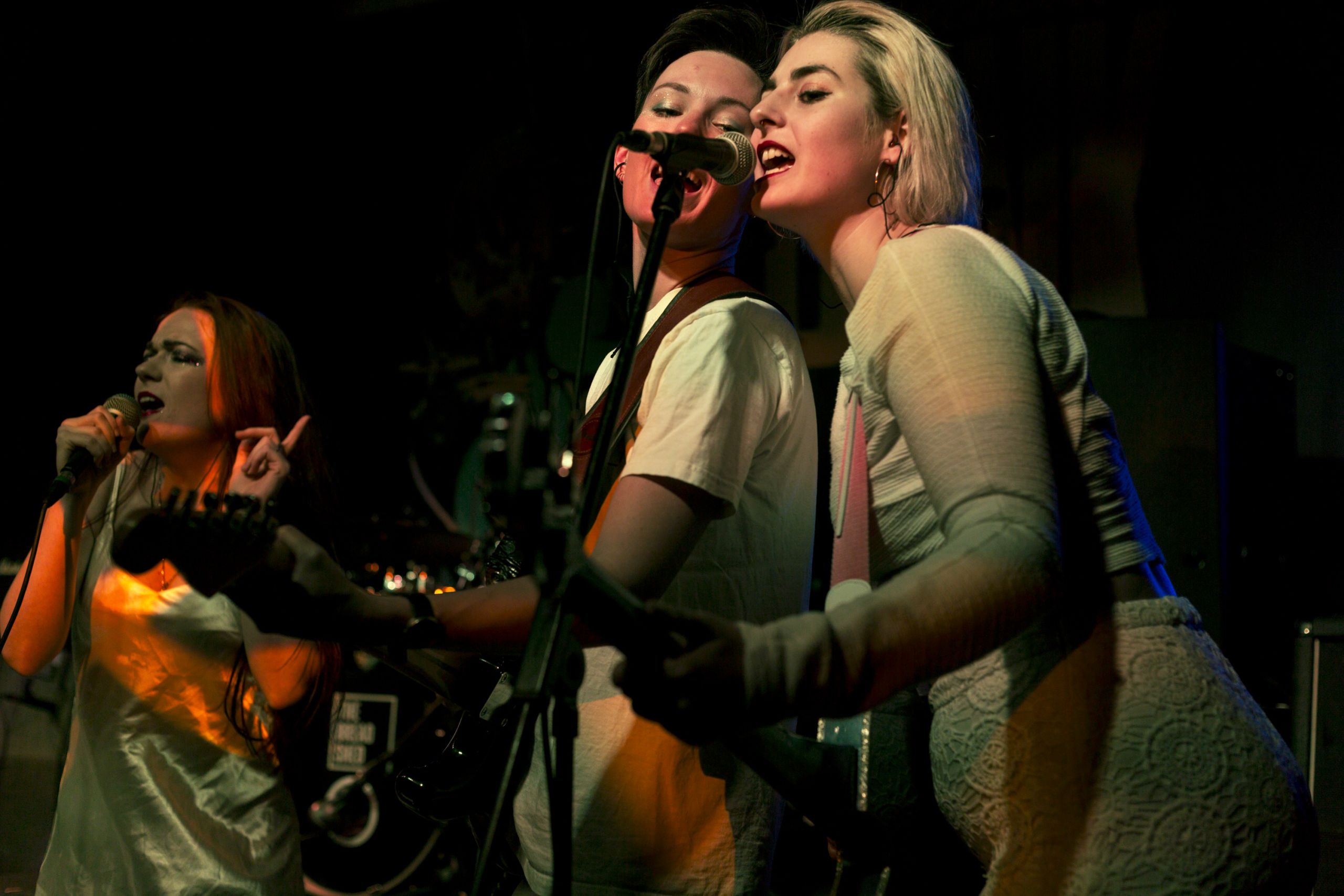
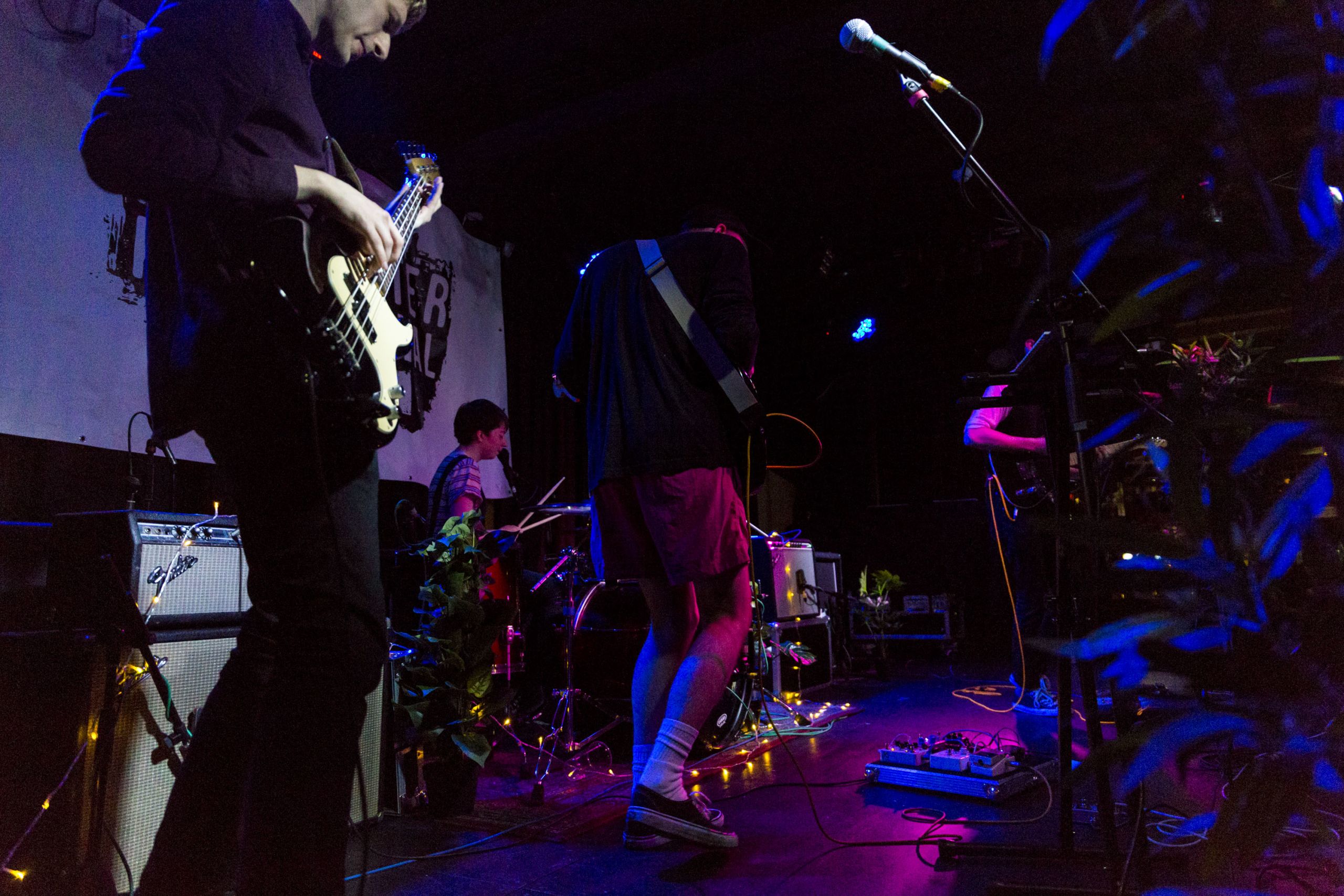
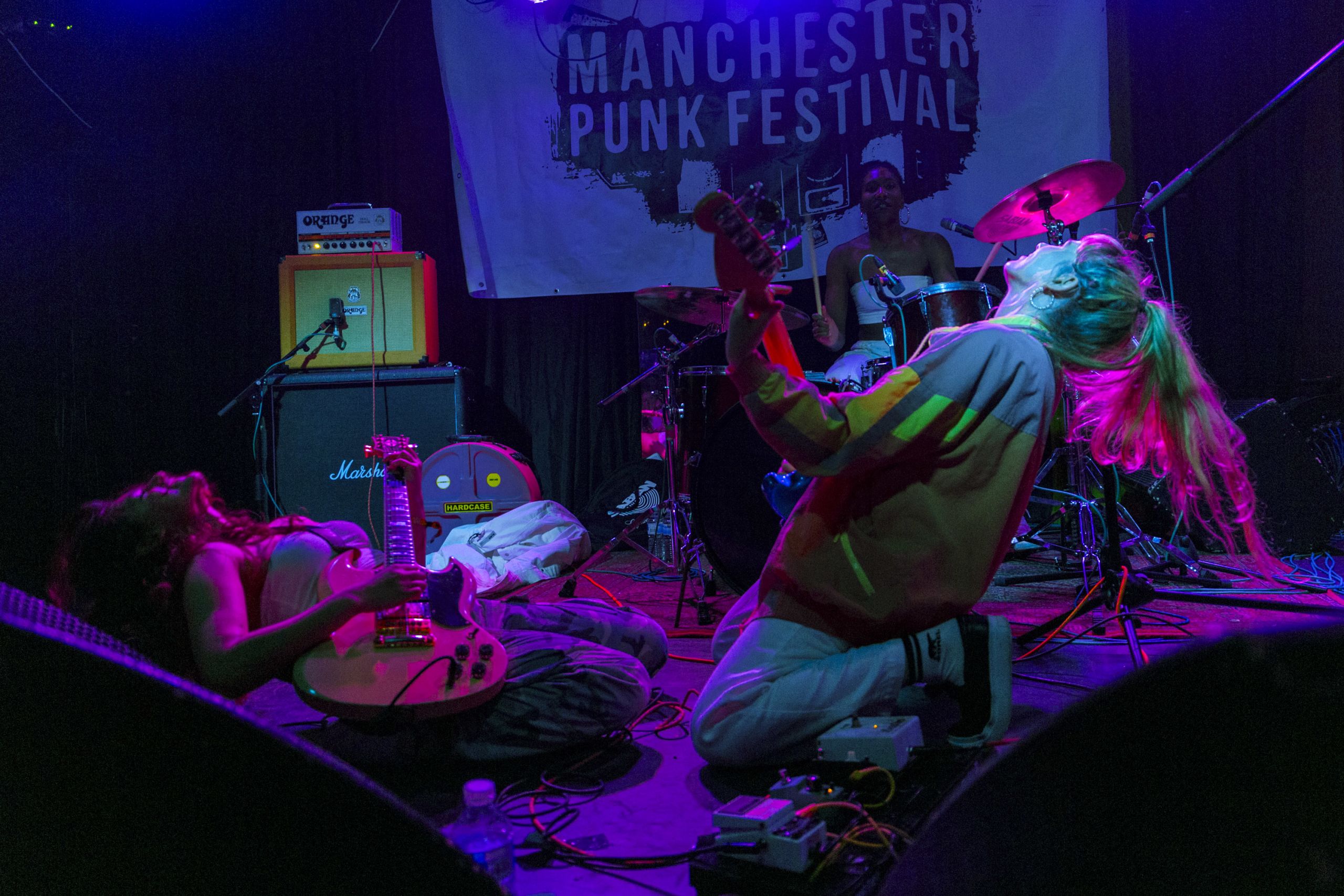
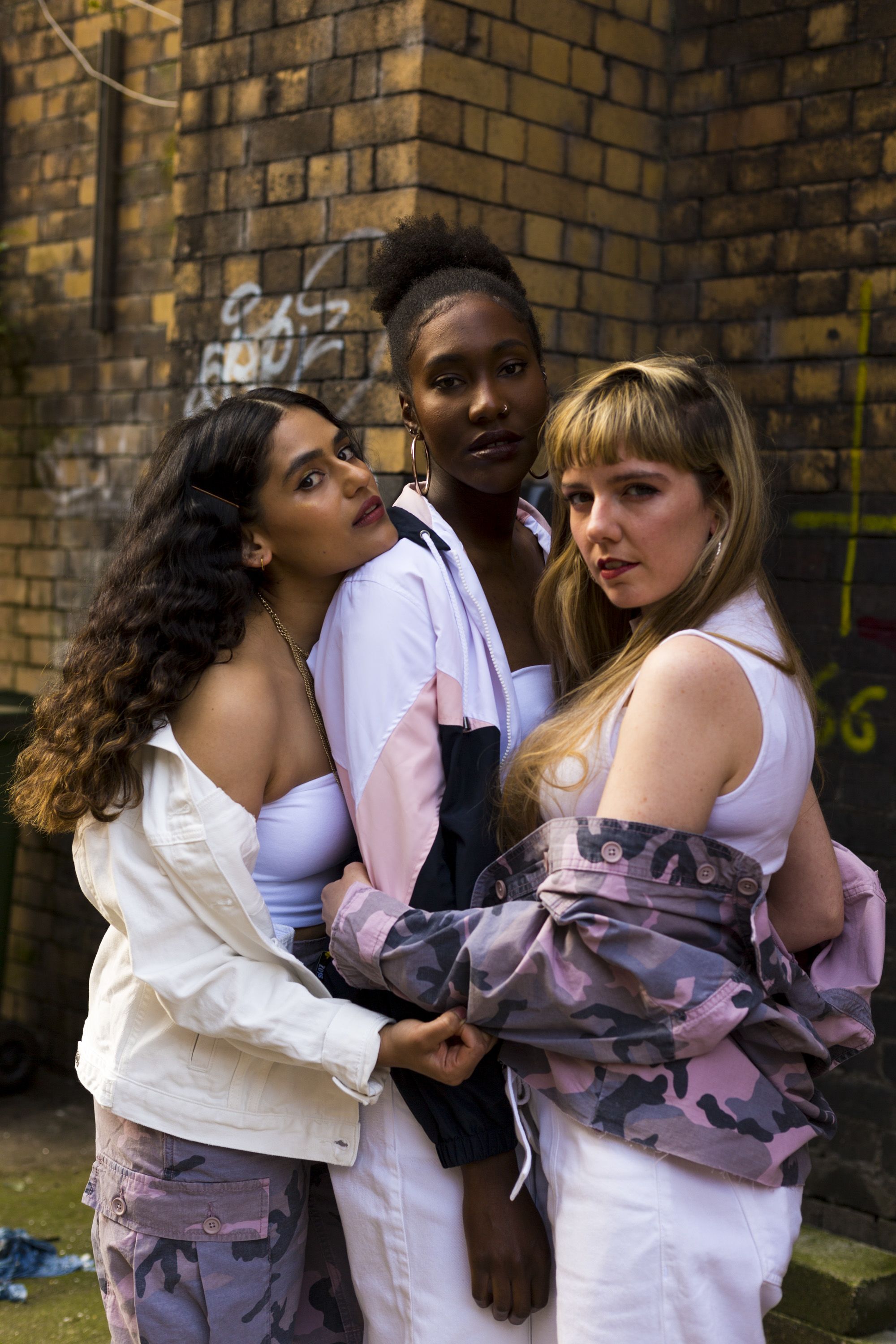
The Tuts
The Tuts
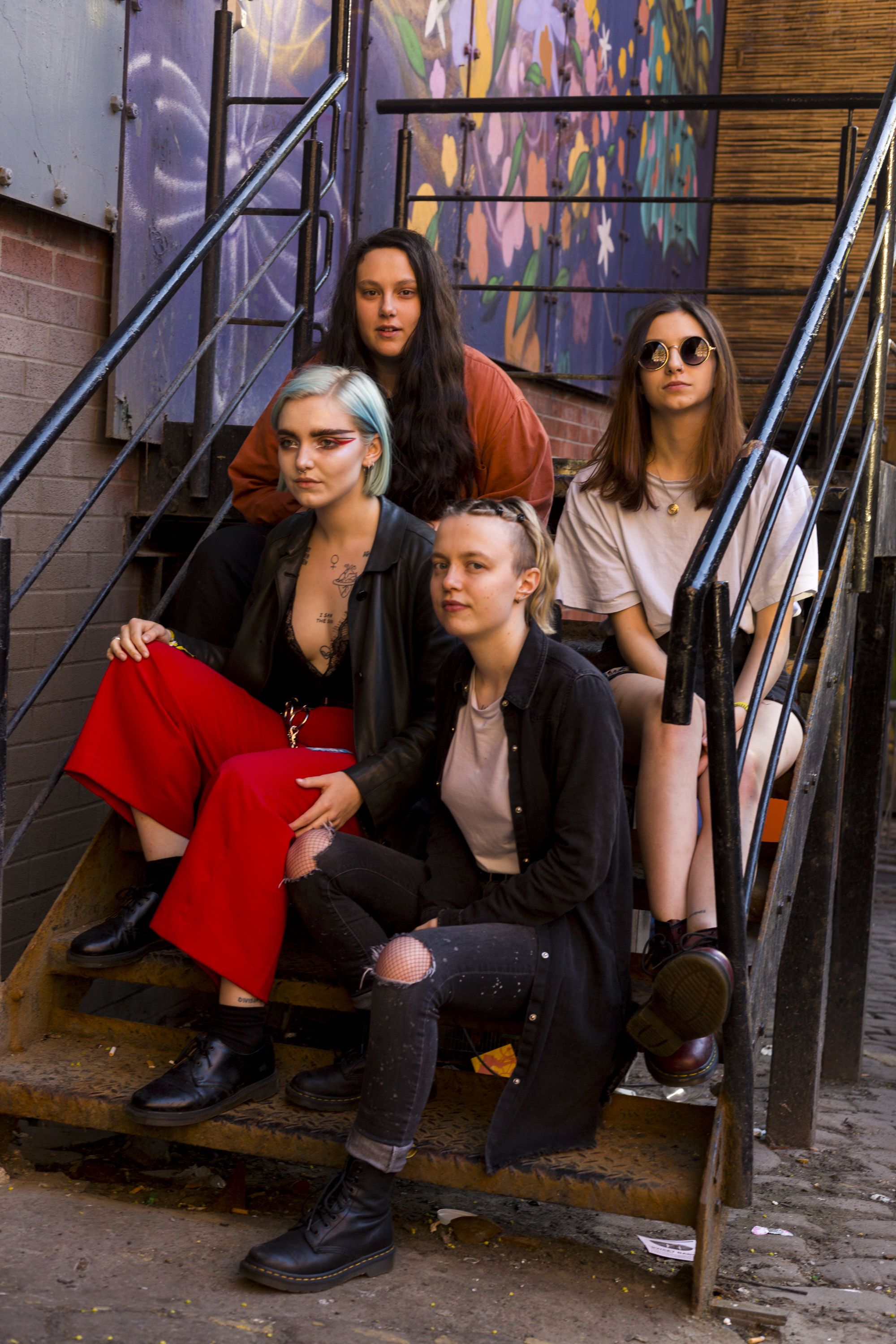
WITCH FEVER
WITCH FEVER
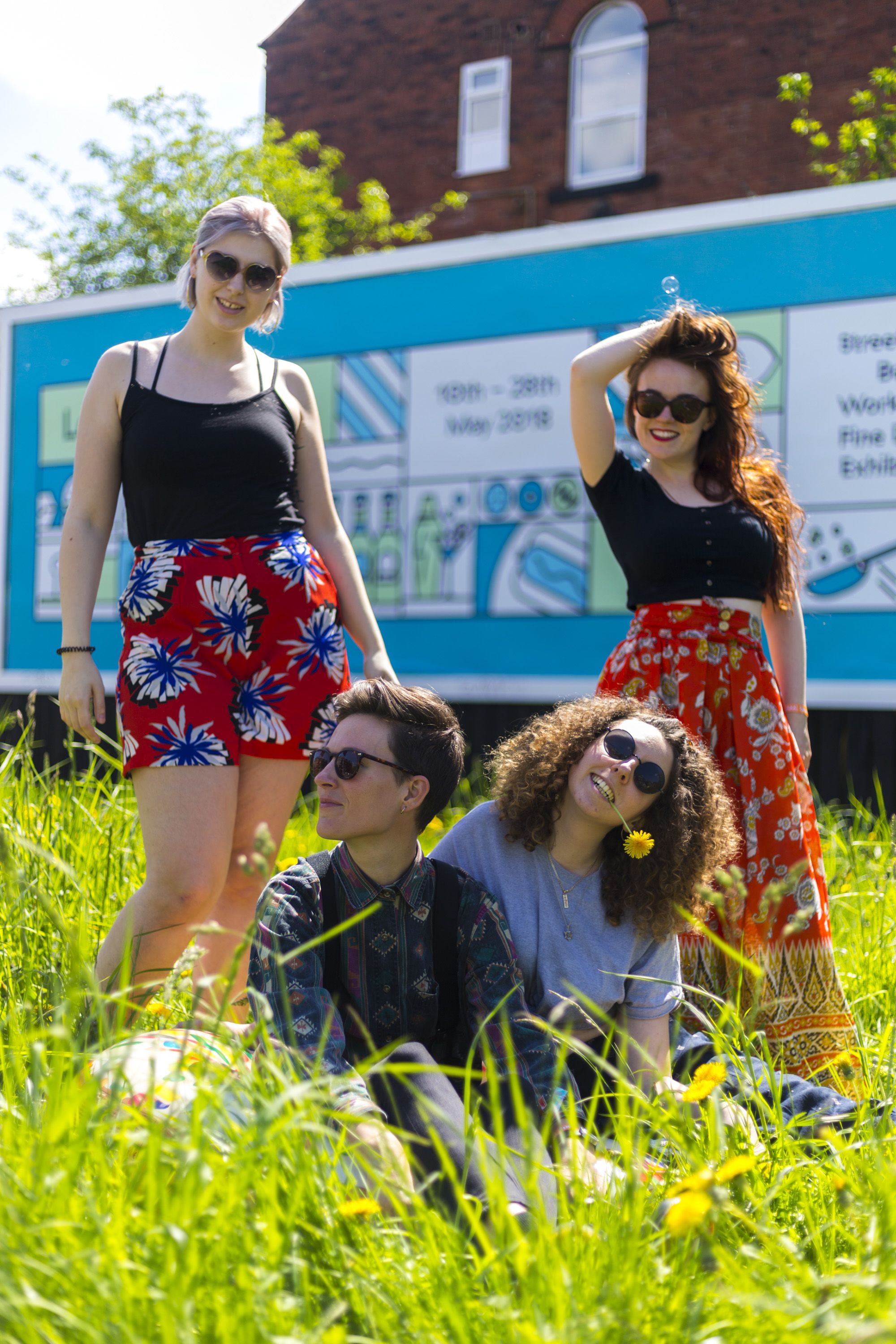
Dream Nails
Dream Nails
It’s important to seek out this same representation and appropriate use of platforms within journalism and the media, because many reporters are still white and from upper-class upbringings,“so probably won’t have that understanding of what to represent and what needs a platform, because they haven’t felt it,” Nadia points out.
Bev agrees: “Then that doesn’t get the word out about certain things that need to be highlighted.”
Behind the scenes is something that’s harder to control, though. Subconscious prejudice and institutionalized racism and misogyny is still rampant. “People come up to us and start talking in an Ali G accent,” Bev says,“assuming that’s what we’re into.”
Not only do The Tuts fight the battle of being women in music, but have to fight the battle of being women of color as well. “It’s not just about being girls,”Nadia says. “It’s about taking into account our race, our religion, our culture, our class, all that.”

The Tuts
“It’s not just about being girls. It’s about taking into account our race, our religion, our culture, our class, all that.”
It has to be something to do with pigeonholing that happens too often within the music industry. Within the genres that see more of a diversity in ethnicity – RnB, hip hop, grime – helps people of color feel less out of place.
Take the example of fka Twigs: when she first was releasing music, not yet very publicly as an artist, critics were at a loss for words to describe her sound, but as soon as press releases with pictures of her were revealed, she was immediately placed within the box of RnB.
The same goes for many girl-fronted or all-girl bands, who are too often only compared to riot grrl bands, even if they sound nothing alike, and similarly are often placed on lineups at festivals and all-dayers grouped with other women, with seemingly no thought behind their actual sound. While branding oneself as a woman in music, specifically, has become a great pride for many bands, it’s discouraging when you’re only considered to play because you fill a quota or find yourself playing for some other vacuous reason.
It’s for these reasons, and so many more, that bands dealing with this treatment, whether it be one-off comments that build up to a whole lot of discouragement, or a whole night of abuse, are using their platforms, with audiences watching live and fans watching online, to speak out about and call out this wrongdoing.
For WITCH FEVER, it’s not so long ago that they had to take to social media to speak out about mistreatment at an all-dayer they had to endure in Bristol.
It seemed like classic behavior for men towards women in a band, only to a whole greater extent – quizzing them on whether or not they knew how to use their equipment, asking them to take off their shirts and give the crowd members lap dances, saying they were going to wank off at their set – but what was so shocking to them was how “it was such a large amount in such a short space of time,” explains lead singer Amy Walpole. “Usually, it’s just one incident a gig, but it was so many all at the same time.” Bassist Alex Thompson agrees: “It felt like a really negative space.”

WITCH FEVER
“It just seems that as soon as women onstage show any part of their body, they’re considered a sexual object in some light, or people immediately start to think about shagging them,” Amy points out.
Many have shown their support for the band during this time, despite a few disrespectful comments on the post they made about the incident – along the lines of “I’m having a wank now” and “All I see is tits” – but it’s occurrences like these that prove there’s far to go for women in the industry facing these wrongdoings.
— WITCH FEVER (@WITCHFEVER) April 1, 2018
“Whether I want to or not, if you’re a woman playing punk, everything you do is going to be political, so might as well make it your own politics and roll with it.”
There are loads of stories like this, even from other women. Kathryn Woods, lead singer and guitarist of London scrappy grunge four-piece Fresh, has been complimented in the past for not wearing makeup and not showing cleavage, “because that’s apparently what women in bands have to do,” drummer Dan Goldberg says.
But it’s not only middle-aged women who grew up in “that time” who experience these ingrained misconceptions; even Kathryn, along with no doubt countless others still have to deal with internalized sexism and homophobia thanks to these perceptions still running amuck within and outside of this industry.
Outside of that, Dan also points out, “Kathryn, being a woman with a microphone, doesn’t have the luxury of not being questions on anything that she says.”
A DIY space is a safe space to avoid such questioning eyes, where “people look at me like I’m a lab specimen or something,” Kathryn says. “Whether I want to or not,” she admits, “if you’re a woman playing punk, everything you do is going to be political, so might as well make it your own politics and roll with it.”
That’s what London “punk witches” Dream Nails do at every gig, and in between, at each show putting a hex on misogynistic figures and conservatives politicians with their deeply infectious riff-heavy tune “Deep Heat.”
While this is more the “fun” side of their set, they do take intersectional feminist activism very seriously, with lead singer Janey Starling having been a part of direct women action groups in the past, and thus brings this passion for equity to everything she does (as does the band).
They take using their platform as a band in the public eye very seriously, which guitarist Anya Peason points out scares off a lot of bands in fear of losing popularity, somehow. “It’s important to write songs about someone’s emotional space and communicate that side of things, but I think it’s weird to, once you establish yourself as someone with a voice, not to use it to share the stories of other people, or to identify campaigns that need attention and help and energy, because that kind of thing can really help.”
They are currently proving this by using their platform to sell a zine (something they make to go along with every release) about reproductive justice and raise money for Abortion Support Network, an organization that supports women coming over from Ireland to seek a safe and legal abortion. It goes much further than that, however, and the topics raised in the zine range from this, to parental rights to women who go to jail while pregnant, to healthcare rights as a trans person.

Dream Nails
“Our whole approach to feminism is a lifelong journey of learning and listening,” Janey explains, and she wants the people listening to them to partake alongside them. “I want people to learn about this stuff and to think about things that they haven’t considered before, and to understand the scale of violence against women and the diverse oppressions that women are facing.”
Drummer Lucy Katz notes how often bands use this pursuit of activism in their music (alone) as a branding exercise. “We’re all quite cautious of a lot of bands appropriating certain political movements or ideas or even feminist ideas and concepts, and then taking them, sanitizing them, making them empty,” she says. “It feels such a shame and such a waste, because for us, it’s so important to have substance behind that, and that’s something that we’ll never, ever let go of. And the minute we let go of that, we won’t be a band anymore.”
Janey’s still very aware of the fact that art is not nearly enough in regards to activism or political movements. “It’s a really important cultural platform,” she admits, “and it’s an incredible way to reach a lot of different people in different locations, but ultimately, it doesn’t really contribute to that much structural change. It doesn’t really put the work in motion that’s needed for liberation. It’s a step on the journey, but I think it’s pretty preliminary.”
Another thing they do at every gig is their “girls to the front” initiative, taking time in their set to invite women and non-binary to approach the front of the crowd, and sending men to the back, in order to encourage a safer and more fun atmosphere, in the setting of a punk show where the weight of a patriarchal society is often emphasized.
Bassist Mimi Jasson notes that creating that safer space at the front of the crowd is for the band as well: “When you see the women and nonbinary people coming to the front, it actually is so mutual, because I feel a lot safer with them being there as well. This is our space!”
It’s this kind of deeper change that Dream Nails are working to inspire in everyone, from quitting a corporate job, to hexing horrible politicians, to creating a safer space for women and nonbinary people. If they can’t create a safe space physically, their songs can’t complete the process emotionally, by encouraging a release of anger and emotions in a fun environment that is their greatest pursuit by performing these songs.
Screaming along to “Deep Heat” (“nobody cares if your dick is on fire”) or “Joke Choke” (a song about how rape jokes ARE NOT FUNNY) are two completely different releases of emotion, but either way are two “really extreme releases of emotion that are really therapeutic when you do it publicly and collectively,” Janey explains. Crafting a breathable space for people who perhaps struggle to find that in this world is so powerful, and so important to them.
Yes, this really happened today... 🙄🙄🙄 we responded with domestic violence statistics. https://t.co/BUGjuR5f62
— DREAM NAILS (@yourdreamnails) May 5, 2018
“When you see the women and nonbinary people coming to the front, it actually is so mutual, because I feel a lot safer with them being there as well. This is our space!”
Being a refreshing sound for an audience means making observations about things as a woman or non binary person, which somehow often have a sense of shame about them. Peterborough “empower/pop/punk” or “an-femme-ic” three-piece The Baby Seals are doing just that, in an attempt to write “joke-y, not man hate-y songs,” as guitarist Kerry Devine says that bring women and nonbinary people together in a light atmosphere.
It’s refreshing for a crowd to hear songs about these observations, especially when they themselves have perceived them and felt alone in their self-judgment. They handle insecurities women often have about their bodies, especially in a world where we’re shown we have to be absolutely proportional and absolutely hairless – songs like “Nipple Hair” (nana na nipple hair!) and “My Labia’s Lopsided” encourage a light-hearted approach to these concerns, and creates a breathable space in a similar but different manner to Dream Nails.
After a show in Peterborough, a woman approached the band to express her gratitude for writing a song about something she had been so ashamed of in the past. “She was nearly crying, saying she’d been worried about her body and nipple hair, and hearing us play that song made her feel better,” Kerry says, “and I said to the girl, that’s why we’re doing it. That’s it – that’s the whole thing.”
It seems taboo, talking about things like body hair and the shapes of genitals in public because of how society has perceived these topics for so long, but when people do begin to talk, just as The Baby Seals have, it opens up the floodgates, encouraging conversation and acceptance. The beautiful thing about delivering such messages in a fun manner, then, is reaching an audience in an accessible manner that doesn’t come across as “teaching” them anything.
“You have to remember the audience you’re delivering that message to probably already know that message,” Kerry explains. “It’s like me sending a message on Facebook saying ‘racism is bad’. Everybody who I’m friend with knows that it’s bad.” Instead, they’re reaching out to the people who are also searching for that validation, and pursuing an attempt at reevaluating their own internal misogyny.
Now, though, they’re looking to move forward to something perhaps not serious, but something you can more get your anger out to, as is exemplified in “It’s Not About the Money Honey.” “It has quite a heavy feel, and it allows me to kind of express myself in other ways as well onstage,” Kerry continues. “It’s evolved as still having a message, but just playing with the sound a bit more.”
Bassist Jasmine Robinson agrees: “It’s hard to get your frustration out when you’re just doing ‘la la la la,’ whereas, with the last one, you can rock the fuck out.”
On a deeper level, when writing about heavy political topics like The Baby Seals hope to do, it’s hard to be sensitive and appropriate when your sound goes along those lines. “This year, there’s been some really big political things in the news that we wanted to reflect on, and doing that in a poppy way can sometimes undermine what you’re trying to say,” Kerry explains.“We’ve written about the Harvey Weistein thing, and that’s definitely got more of a dangerous sound. Having a song about sexual harassment, you can’t be like,‘la la la!’”
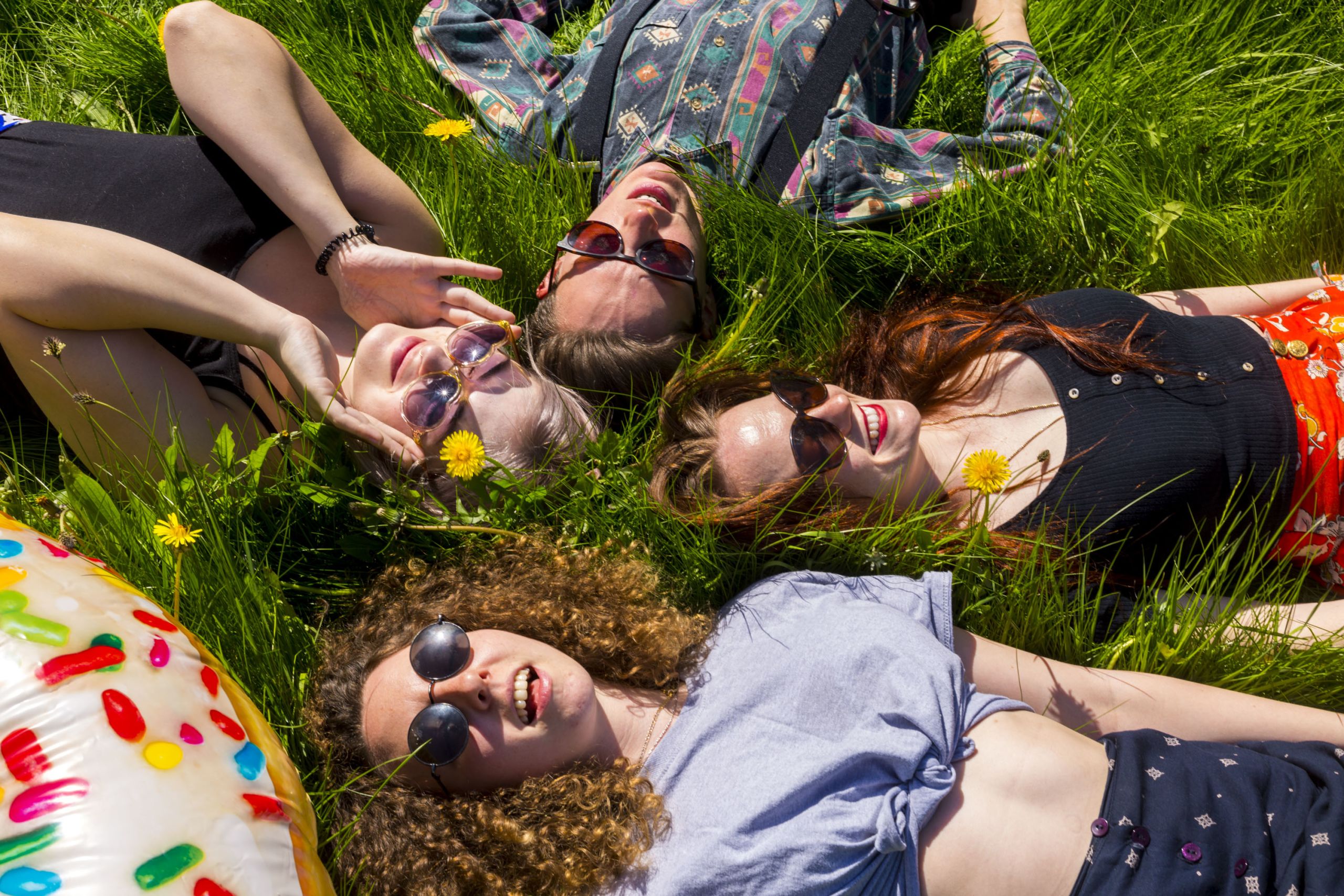
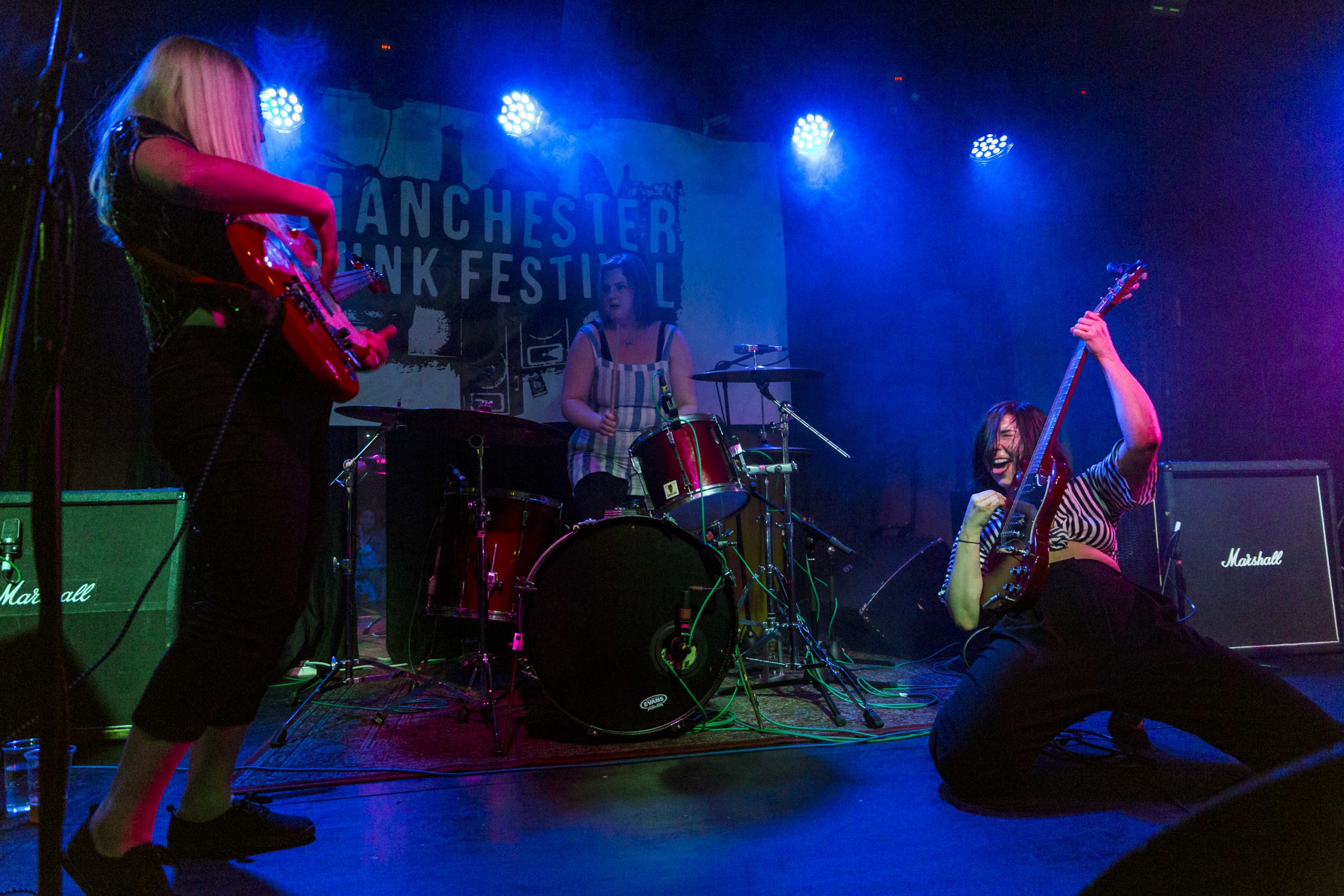
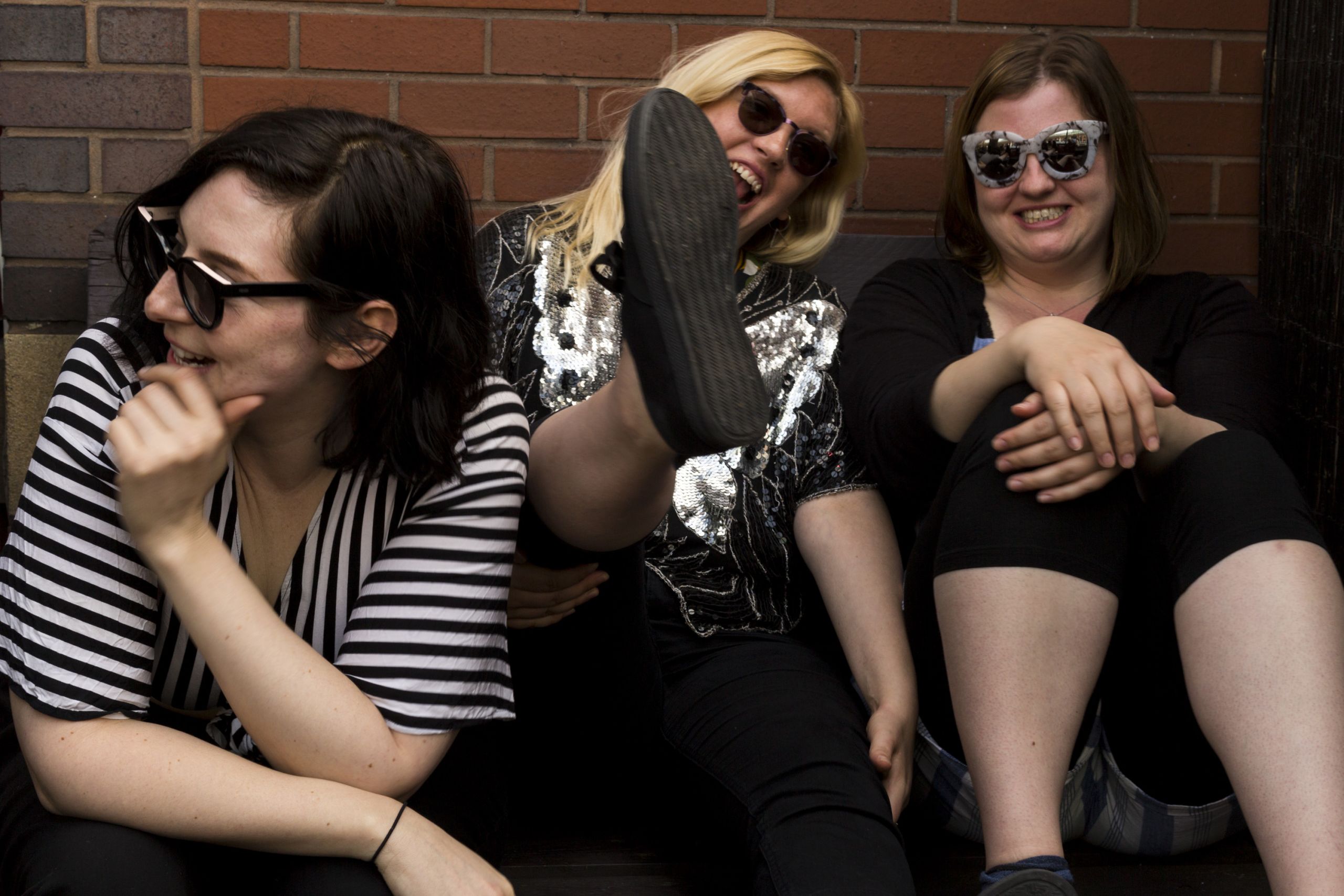
Being in a band has to make it somewhat easier, just as it makes performing more comfortable; you’re up there with friends, and you have someone to turn around to to share a smile with and to bring your hopes up. When you’re a solo musician, especially a solo female or nonbinary musician, it’s so much more discouraging.
Katherine Christie Evans, previously a bassist in Dream Nails and now pursuing her solo project Velodrome, can see the difference clear as day. “There's no one to turn around to and say, I feel really shit, and, maybe he's right, I don't know anything,” she points out. “Knocks still hurt me, but I think I'm just a bit more rational about it now, and I'm more aware that a lot of people talk shit. people have a lot of confidence in their own opinion, and I'm just aware to take it with a bit of salt now.
"I think it's just being a bit more thick-skinned as a solo artist. It is hard, and it's the same thing with going onstage; it's fucking hard. I wouldn't ever claim anything other than that: it's really hard.”
Much of these knocks come from the idea that women carry different standards than men. “If you’re a woman, you might be called something like ‘cocky’, whereas if you’re a guy that would be called ‘assertive’ or ‘confident’,” Kate notes.
“I think I'm just learning from past experiences, so whereas before I might have let something really knock me, something that a guy said to me about a song, like this isn't good enough, and it's been so long since I wrote my songs now, and I really let it put me off for so long, and I've just got to this place where I'm like, actually, no? You're not going to stop me. I think I've just kind of reached a place now where I'm a little bit older and I'm more self-assured.”
"We don't tend to be given a drum kit or we don't tend to be given music production software, and then it just gets harder and harder, because the older you get, you're intimidated."
Kate is also pursuing another facet of music wherein women are sorely lacking: production. Currently in the process of completing a B-tech in music production, she hopes for her future music to avoid going through a man before reaching an audience, something her next single “His Physique” actually did.
“I really want to be more and more in control of my music, because I've played all the instruments on it, I've written it, I've written the lyrics. It's all mine, and then there's this kind of irony that you then take it to a guy,” she says.
Not that the guys are incapable; it’s just too often that songs like this pass through some kind of“male filter” before reaching the outside world. Tove Styrke, an up-and-coming pop artist from Sweden, spoke about how she’d only work with one other female producer in the past, and this seems to be the same for all musicians.
There just aren’t enough women producers working on others’ music, and not just their own (not knocking you DIY ladies producing your own music; keep it up!). “I think it's literally just girls aren’t cultured," Kate notes. "We don't tend to be given a drum kit or we don't tend to be given music production software, and then it just gets harder and harder, because the older you get, you're intimidated, because guys are using all these technical terms. I think, oh my god, I'm never going to catch up, but then luckily there's this stronger half of me which is like, no! This is why I must catch up!”
It’s time to find and encourage more women to pursue these career tracks; it’s hard now to find even a woman sound engineer at a gig, and many note they’ve only worked with one in the past. Creating this more comfortable and integrated atmosphere would greatly benefit more women looking to pursue this career.
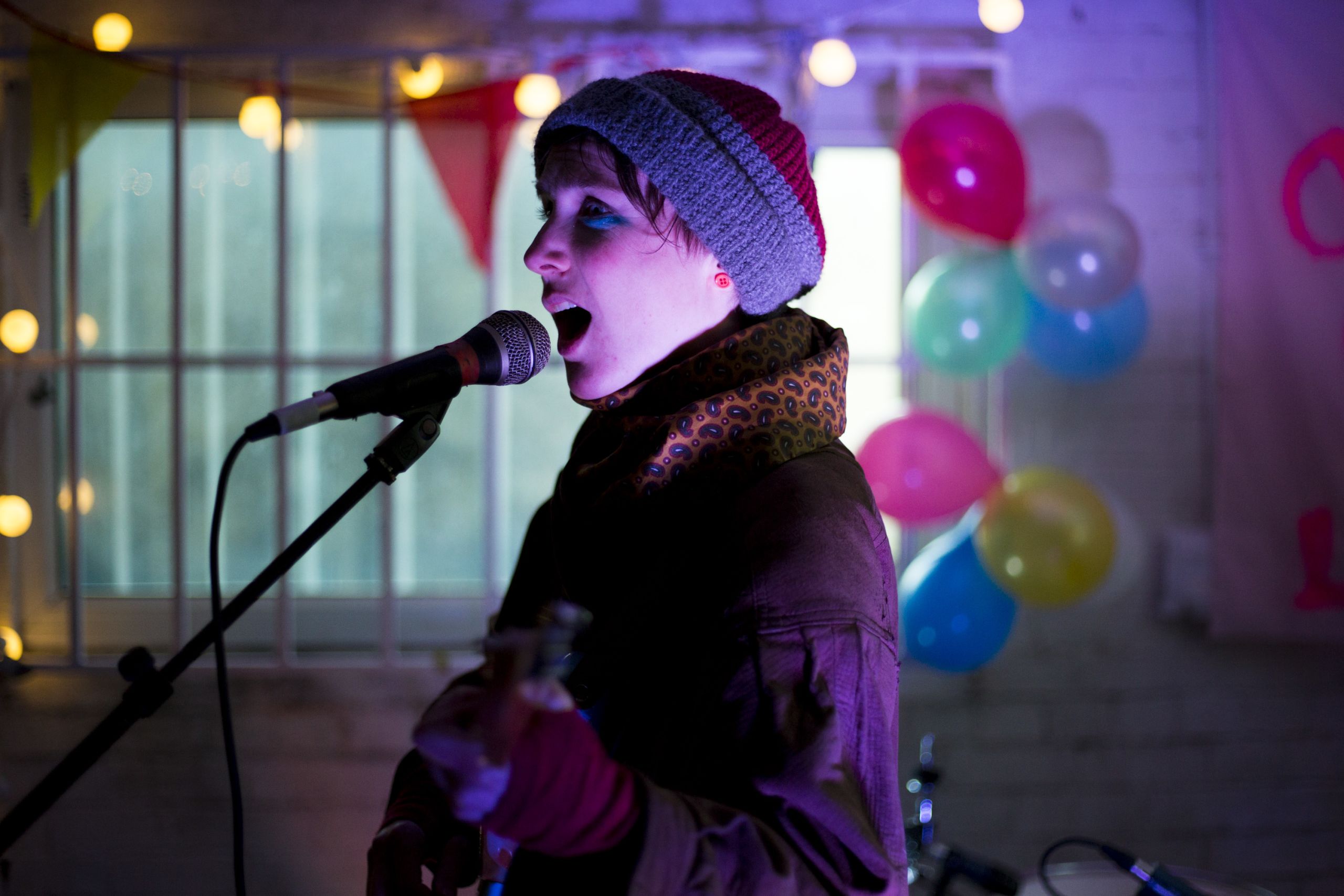
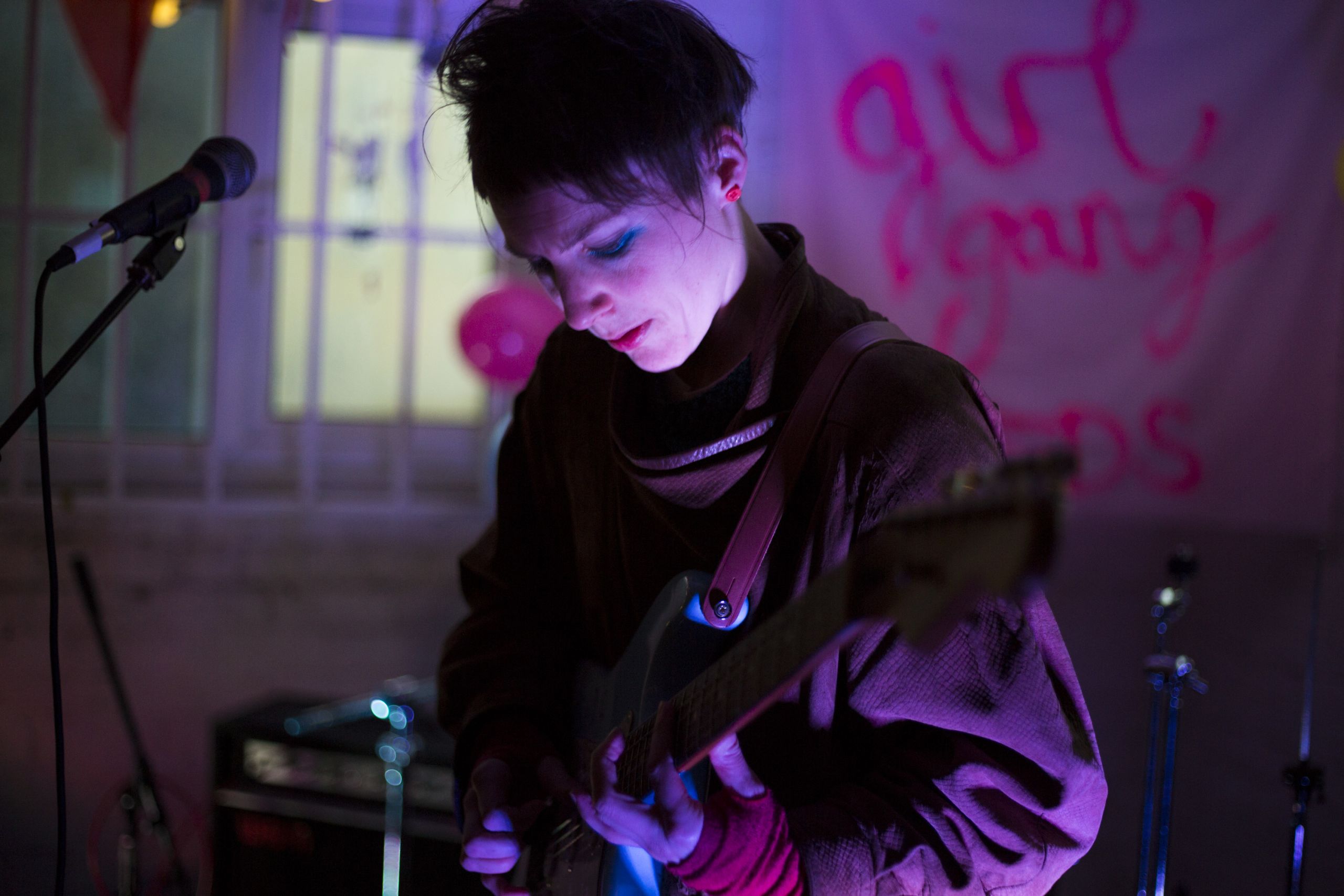
"Sometimes, it’s difficult because you’re trying to please every kind of feminist, every kind of woman or nonbinary person.”
Even in considering all of these different facets of writing and acting for equity and different movements within the music scene, it’s a difficult line to walk, especially when, as a woman or nonbinary person, you’re scrutinised at every step.
There is pressure from audiences and peers to speak perfectly, and to speak for everyone who identifies as someone even slightly similar to yourself. “I feel like we’re scrutinized, like people are waiting for us to call something out or something, and they just want us to be a hypocrite,” Alex explains.
Amy goes on: “Someone commented on one of our posts saying that we were the maidenhead for the ship of feminism. And as much as that’s really lovely and really nice, I read it and was like, oh god! I don’t want this kind of responsibility, because sometimes it’s difficult because you’re trying to please every kind of feminist, every kind of woman or nonbinary person.”
More often than not, it seems that, when given a platform as a woman or nonbinary person (or of another minority identity of any kind), you become the spokesperson for everyone also within that minority.
Fresh, as well, reference Em Foster, lead singer of punk band Nervus, as being treated as the spokesperson for all trans people in music (along with a plethora of Against Me! Comparisons, despite sounding nothing like them).
Being a songwriter, especially as a young woman, can be quite daunting, as what Kathryn thinks is often considers a “gatekeeper” of the ideas she presents in her songs, even though some songs might be about absolutely ordinary, mundane experiences that should be accessible for any to listen to. “I’m always asked to give an opinion,” she says. “I’m treated like the spokesperson for all women. Which, Jesus Christ, I’m not.”
While using a platform is important for many, it’s also incredibly important to remember that music is what these bands are doing, and they can’t be expected to cover everything, without any mistakes; they are human, too, after all.
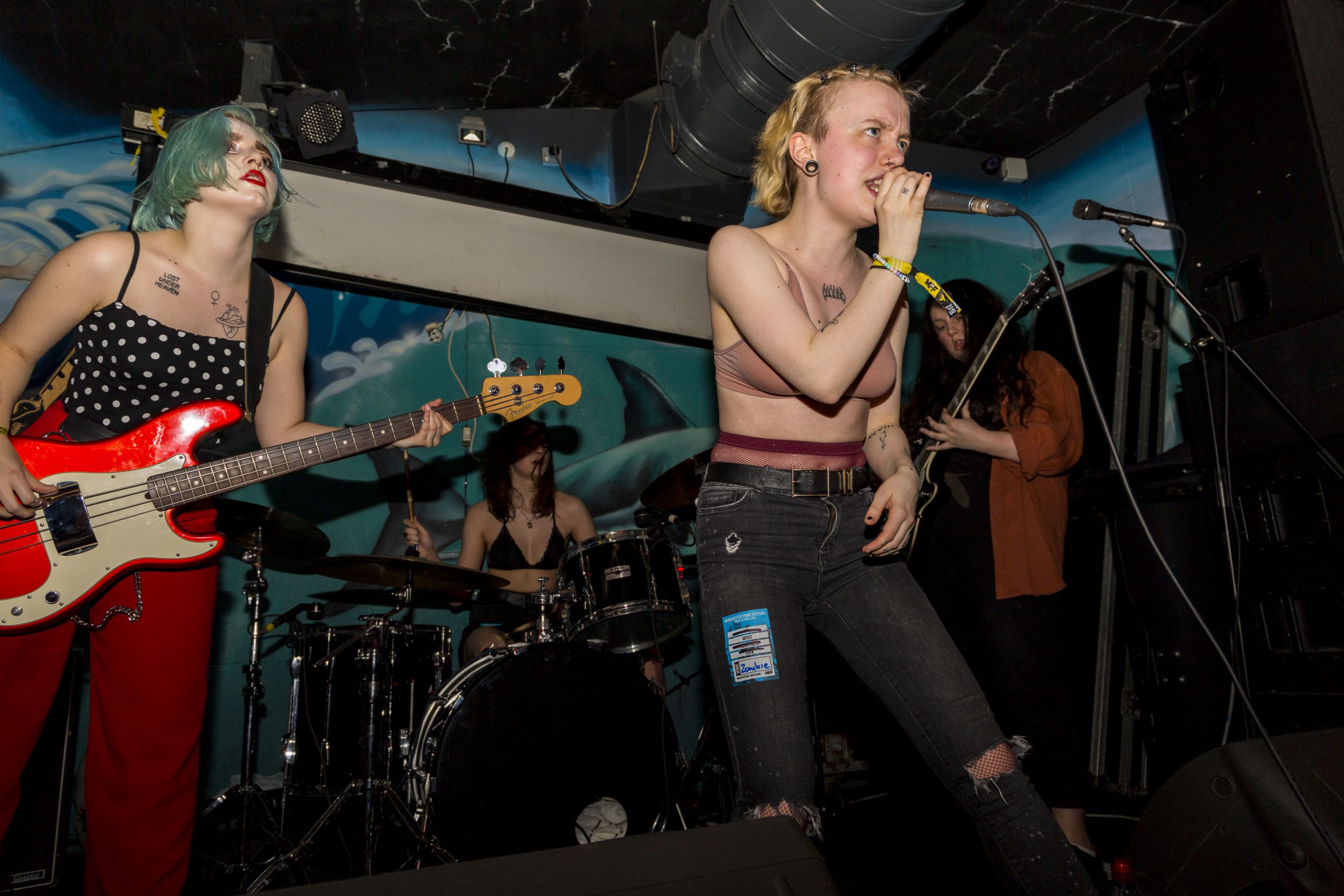
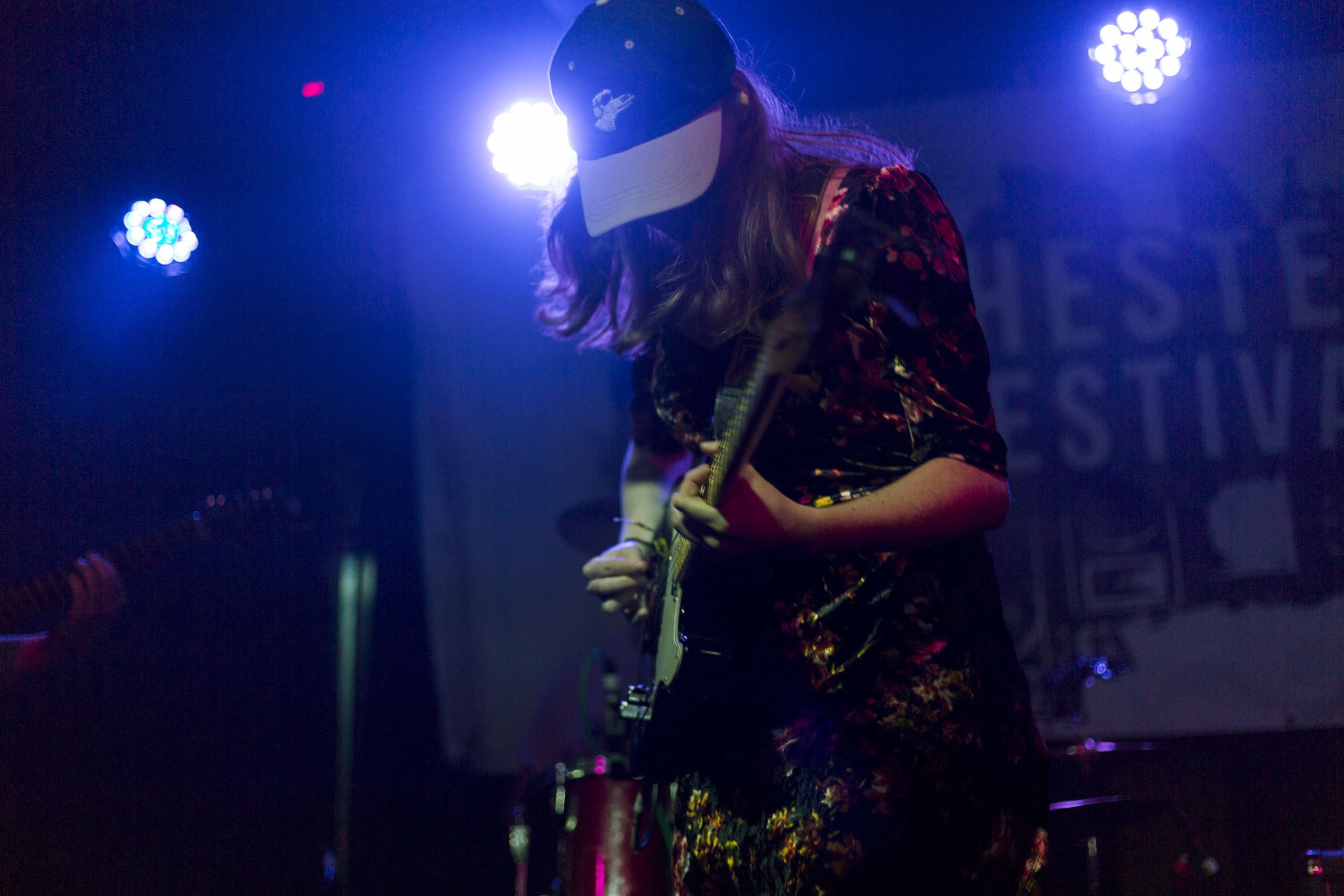
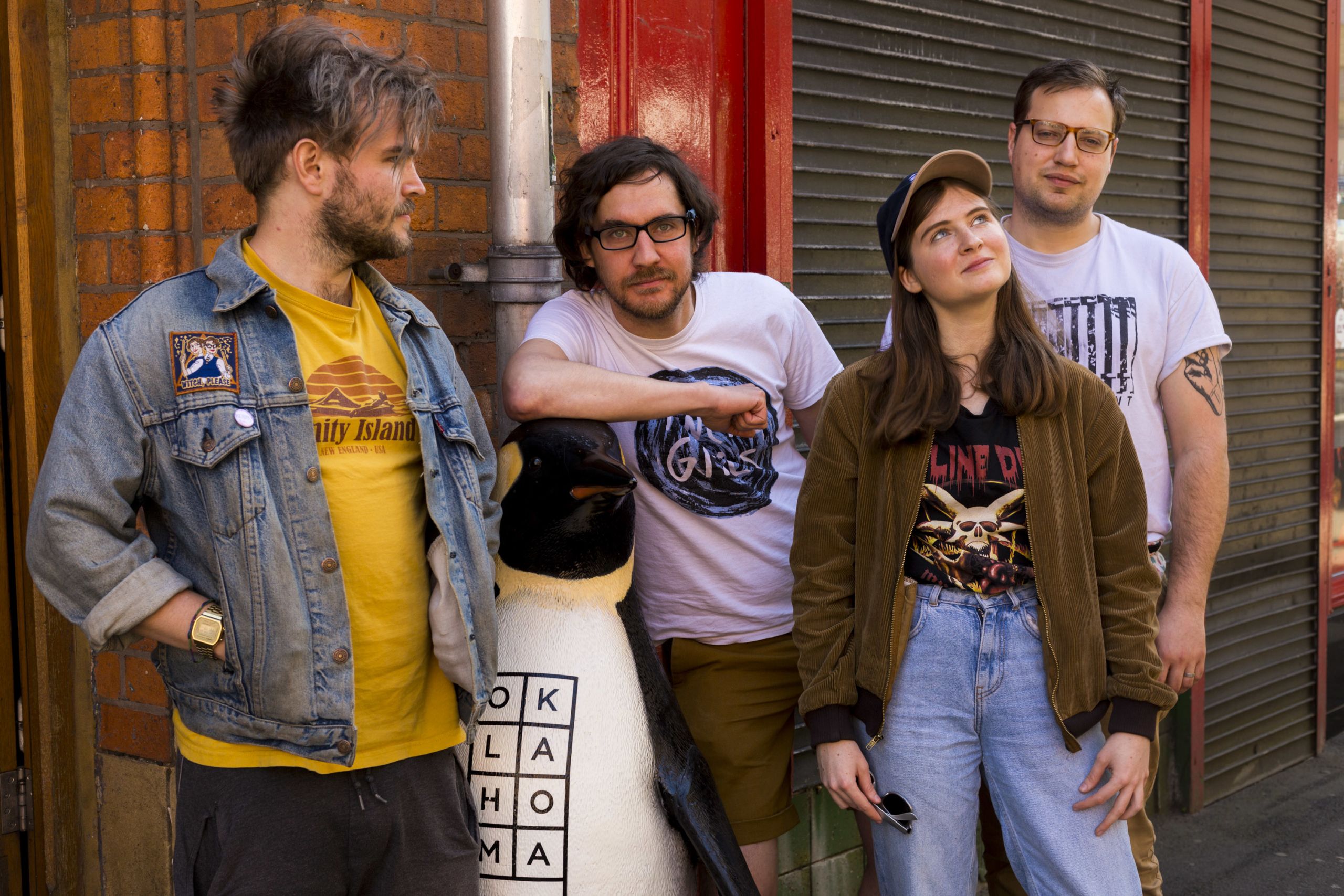
Exclusive interview with Nottingham punk band
BABE PUNCH
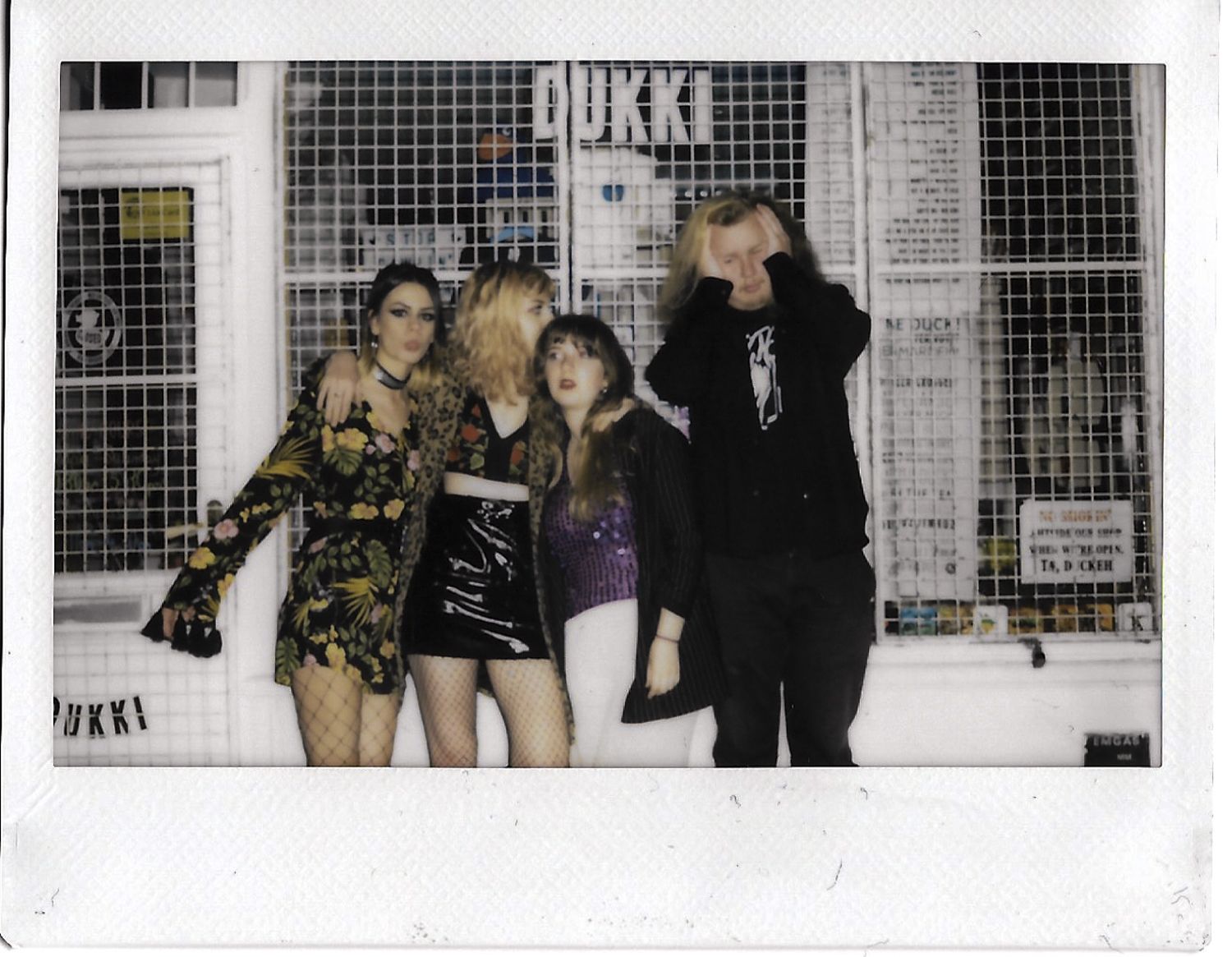
Exclusive interview with Nottingham punk band BABE PUNCH
Exclusive interview with Nottingham punk band BABE PUNCH
All images, words, and video by Francesca Tirpak. Video sound by Charles Peacock.
